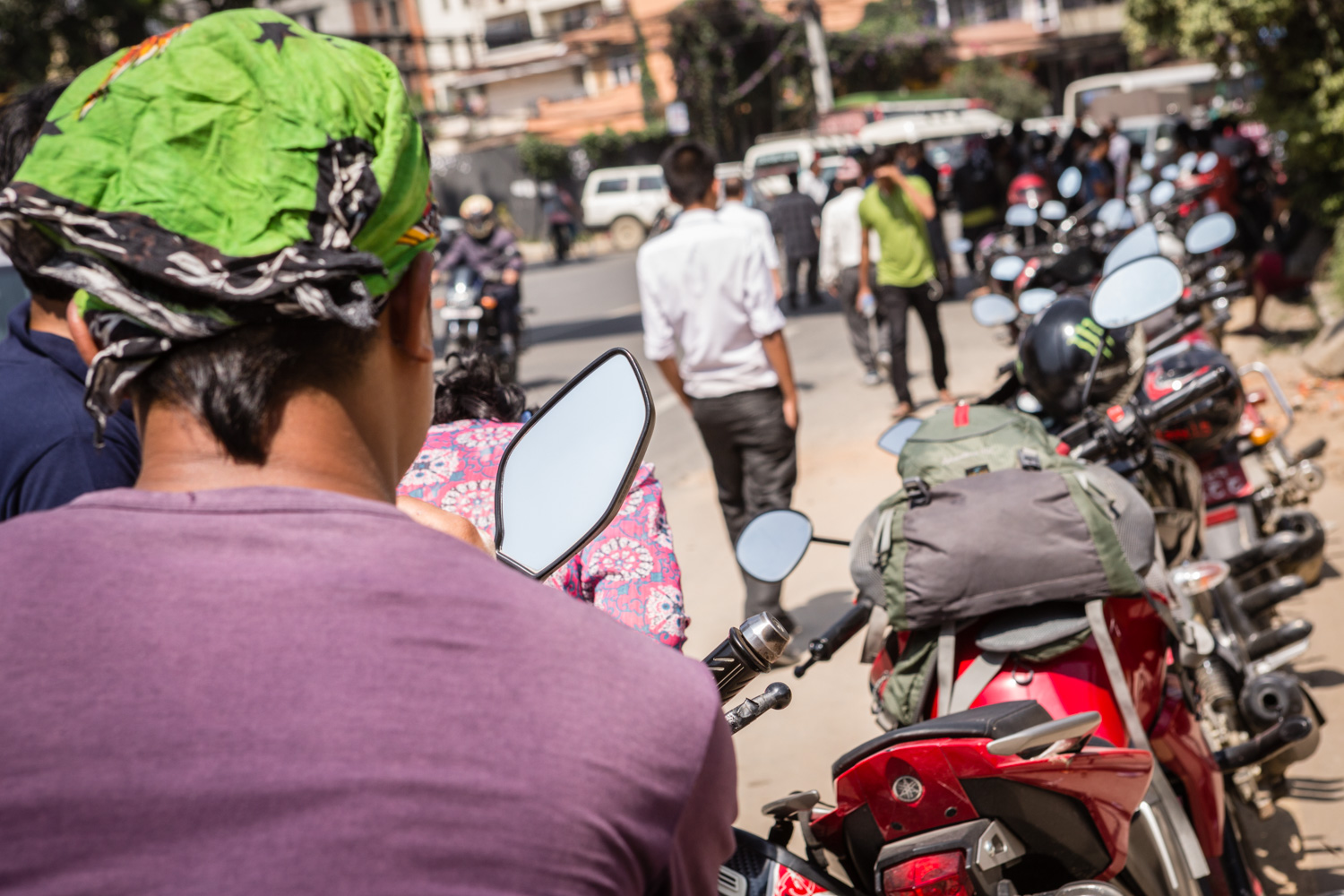Out of Fuel in Kathmandu
This has been a difficult year for the people of Nepal. Devastating earthquakes last spring have been followed by civil unrest in the south region of the country, bordering India, because of the new constitution. This prompted the Indian government to close its borders in mid-September, creating an unofficial blockade and effectively cutting off Nepal from basic supplies such as: petrol, natural gas, food, and consumer goods. Trade routes with China are not as developed and cannot compensate for the obstructed flow of imports from India. This has created significant economic losses for the country and impacted the daily life of regular Nepalese.
During the first few weeks of the blockade, the lineups at gas stations wrapped around major streets and people had to wait from 8 hours up to a whole day to obtain minimal amounts of petrol (2-3L) for their vehicles. In the beginning of October, after gas stations ran dry, the government shut down provision of petrol to private vehicles. Since then, Kathmandu has stood still. Prices of taxis have increased 10 times - if you are fortunate enough to find one at all. This has prompted several bold Nepalese to ride on roofs of public buses and rickshaws due to overcrowding.
Businesses have also experienced significant losses. Most restaurants in the city have shut down, unable to transport basic materials or purchase the natural gas they use to cook. Many other businesses and factories rely on backup diesel generators to power their operations during the 8+ hour daily outages; most have been forced to close down, and are in search of alternative energy solutions such as solar.
Photo credit: © Kristin Lau www.kristinlau.com
Besides the impact on the economy, the fuel crisis has taken an enormous toll on the people of Nepal, who recently celebrated Dashain. Dashain is the longest and the most auspicious festival in the Nepalese year, celebrated by people of all caste and creed throughout the country. Unfortunately, this year’s festival is “just not the same” according to many locals. The typically crowded markets leading up to the festival have been practically empty due to the lack of goods for sale and means of transportation.
Some optimists view the brighter side of this blockade. The air pollution from vehicles has significantly subsided and the city has become much more bike friendly. Some have found more time to spend at home with their families due to the inability to commute to work.
But overall, the situation accentuates Nepal’s need to shift towards a renewable energy future.
Photo credit: © Kristin Lau www.kristinlau.com


